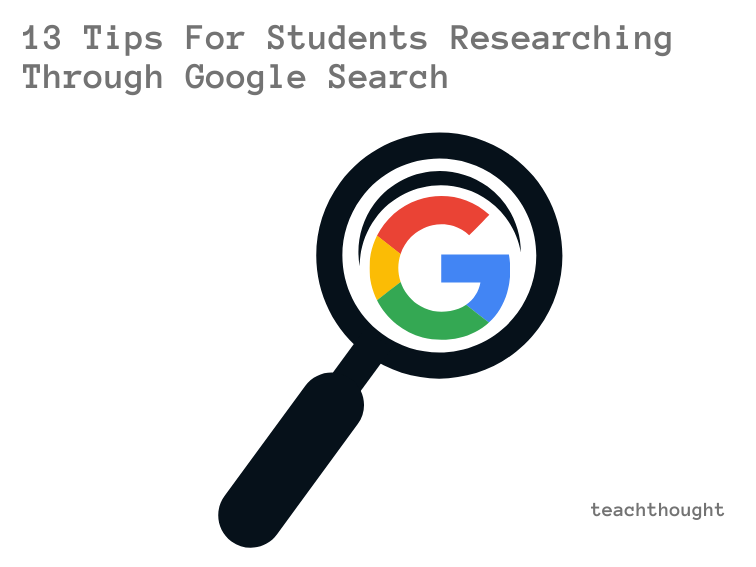
13 Digital Research Lessons For Google-First Students
by TeachThought Staff
Google Search offers as a universe of information and has thoroughly changed not just research but the very appearance of the accessibility of knowledge.
In How Google Impacts The Way Students Think, we theorized that Google could create “the illusion that answers are always within reach even when they’re not,” and wondered about the depth of any questions with answers students can simply ‘Google.’
Further, we offered that “by ignoring the phases of inquiry learning, premature Googlers often find what they want rather than what they might need” because exactly what you’re looking is likely harder to find than what you’re not. By conditioning students to ‘Google’ ‘answers’ instead of research, data, and ideas, students could come to believe
This doesn’t make digital research better or worse, but rather different. So in response, here are thirteen digital research lessons on credibility and research for the 21st-century student who has grown up in an age of information abundance, but contextual scarcity.
What Students Need To Know When Researching
Lesson 1: Whether it’s a book, documentary, blog post, or tweet–just because you read it doesn’t mean it’s true.
Lesson 2: Not all sources are created equal.
Lesson 3: Always cite your sources.
Lesson 4: Wikipedia is a fantastic source.
Lesson 5: Know when you need a book and when you need to Google.
Lesson 6: There are different rules for citation depending on what format you’re using.
Lesson 7: Curation and readability will make your digital research easier.
Lesson 8: Sometimes the recency of a source matters and sometimes it doesn’t.
Lesson 9: Popularity and credibility are not the same.
Lesson 10: Question everything–even if you like the source. (Especially if you like the source!)
Lesson 11: Get as close as you can to the original source.
Lesson 12: There is a difference between primary and secondary sources. Both matter and one isn’t necessarily ‘better’ than the other.
Lesson 13: Google doesn’t make info easy to find based on credibility, but rather searchability, indexing, and other ‘SEO’ logistics. That doesn’t mean that what you find is wrong–only that what’s easiest to find may not necessarily be right.
13 Tips For Students Researching Through Google Search
